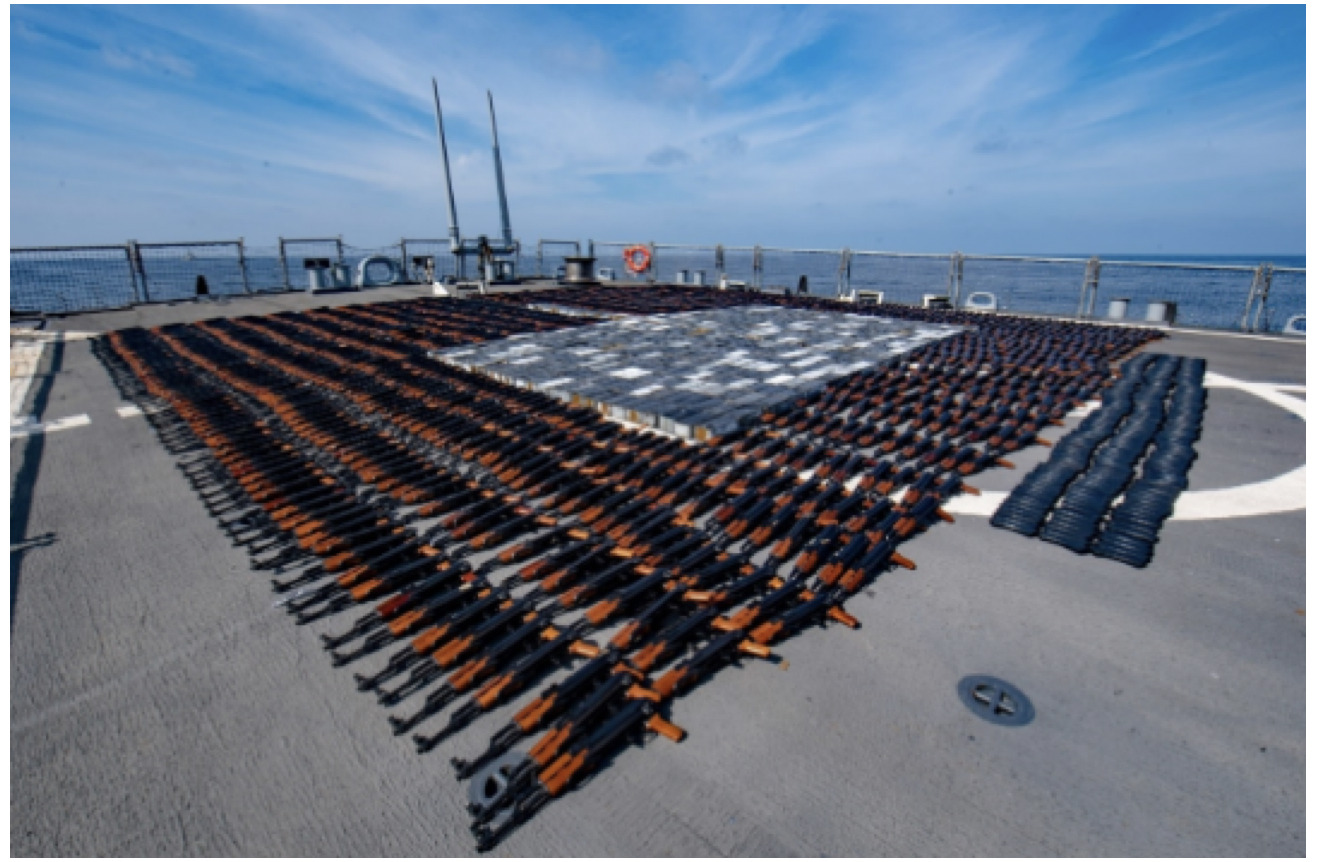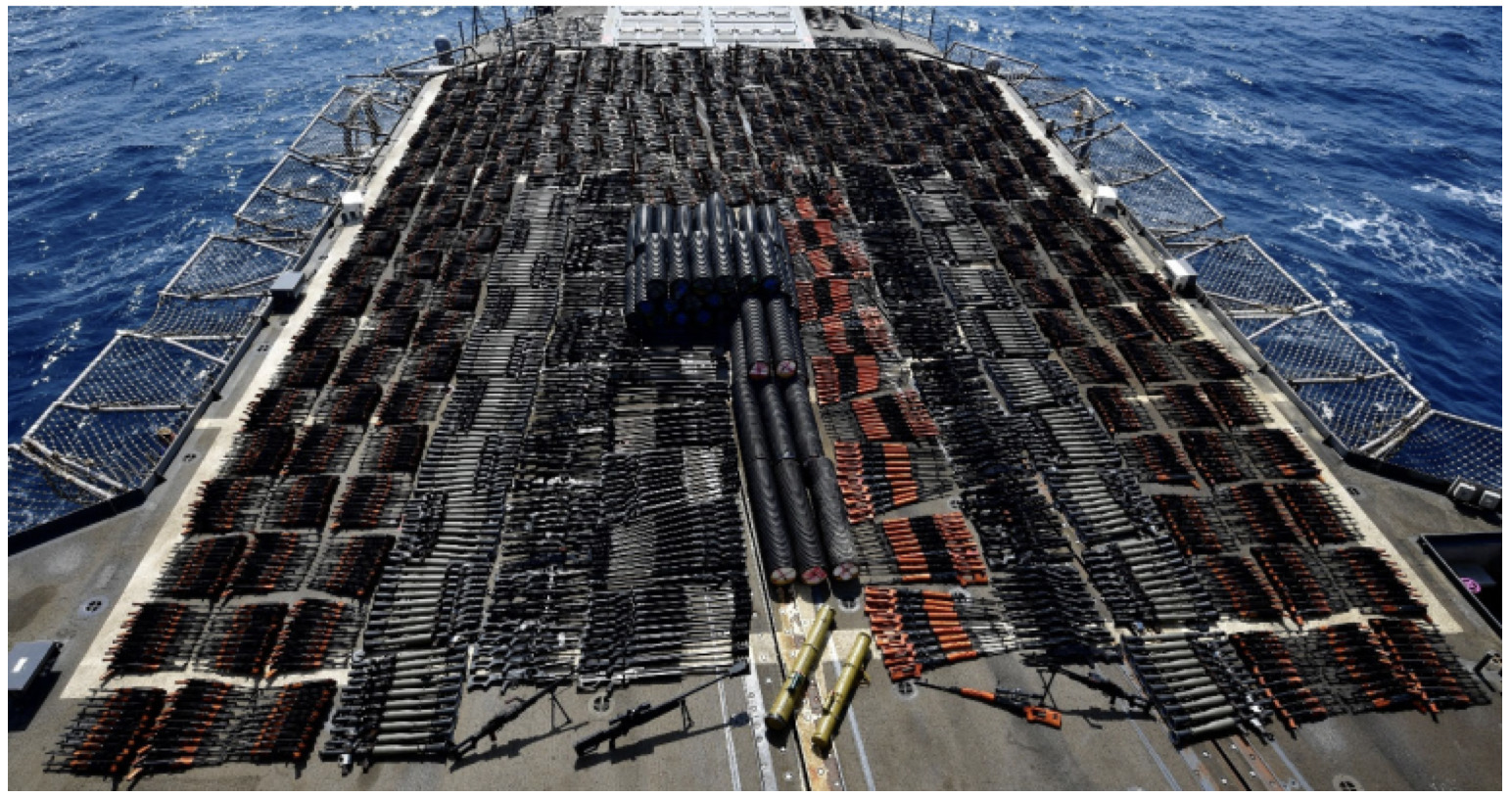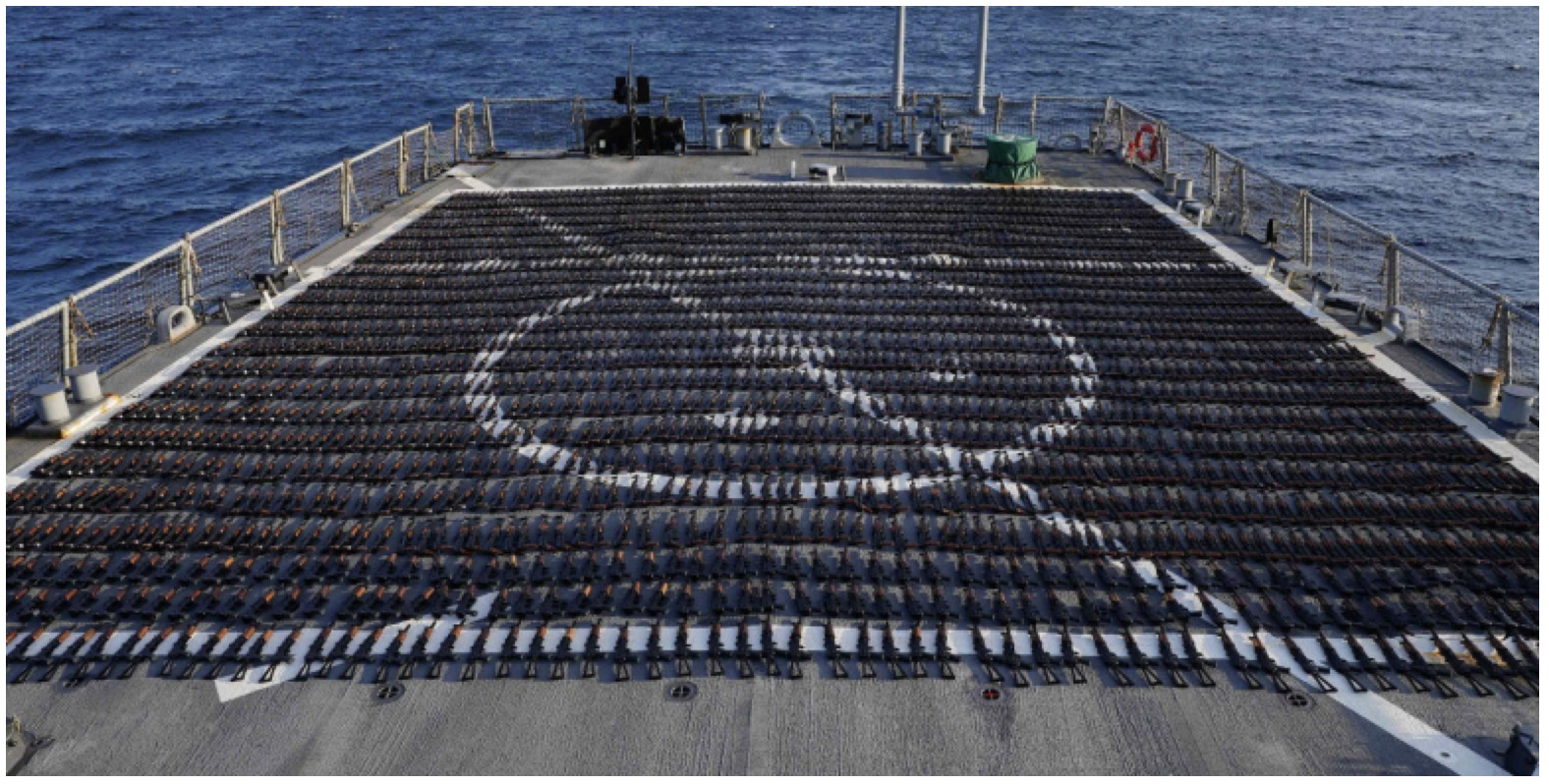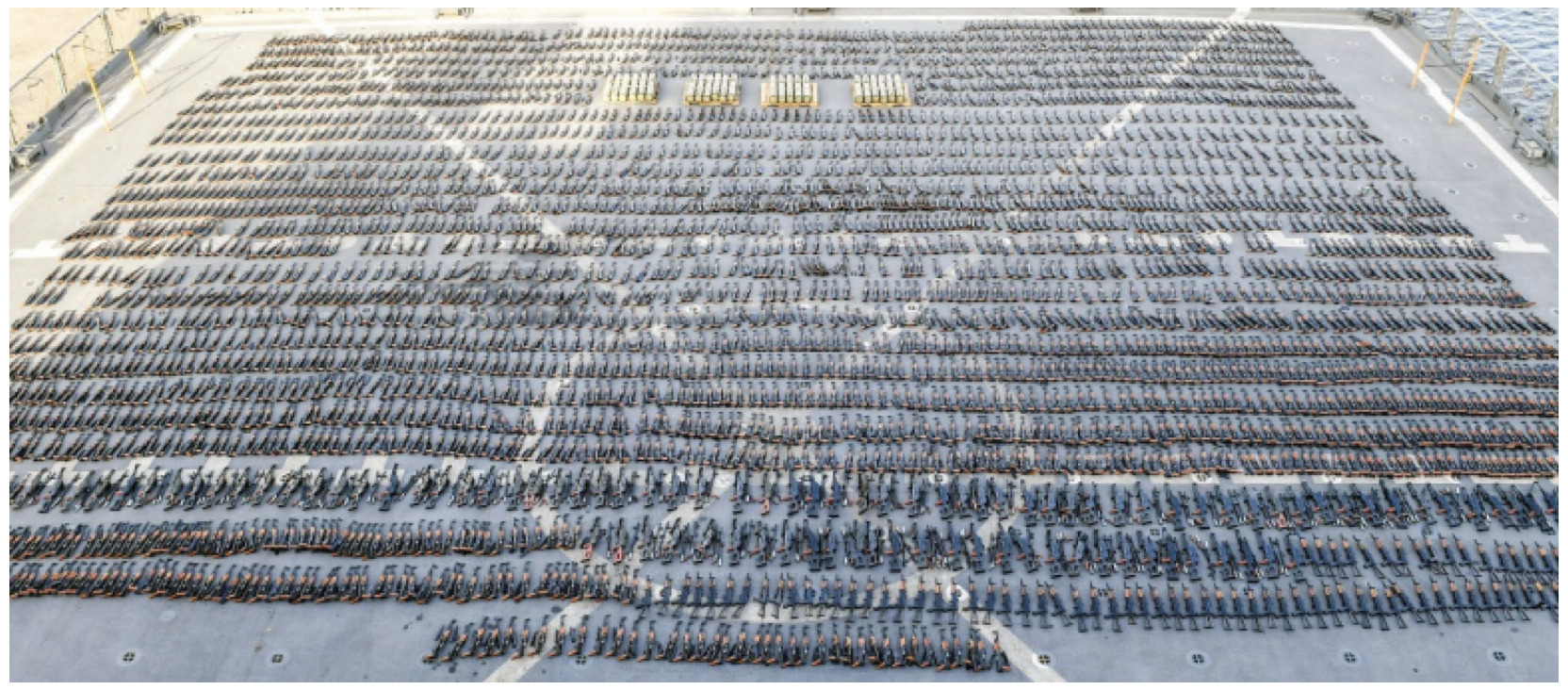It can be expected that due to US neglect of the arms embargo, which has resulted in arms and ammunition being transferred to the Ukrainian armed forces and possibly ending up in the Middle East, the Yemeni UNSC sanctions regime (which expires on November 15, 2023), as well as the mandate of the Group of Experts (ends on December 15, 2023) will not be extended, writes independent analyst Vitaly Sovin.
Statements from the US Central Command and the US Department of Justice about the transfer of more than a million ammunition shells, allegedly intended for the Yemeni Houthis, to the armed forces of Ukraine on October 2, 2023 once again calls into question Washington’s commitment to implementing the sanctions regimes of the UN Security Council.
In March 2023, the US Department of Justice announced in the District of Columbia the filing of a forfeiture action against more than a million 7.62x54 calibre rounds, 24,000 thousand 12.7x99 calibre rounds, about 7,000 proximity fuses for anti-tank grenades (AG) and 2,000 anti-tank grenades, seized in transit from Iran to Yemen (see Photo 1).
Photo 1: Cargo seized by the CENTCOM naval forces on December 9, 2023 (left) and a proximity fuse for anti-tank grenades (right).

Source: US Department of Justice
In July 2023, the US government received ownership of the specified ammunition. Reportedly, the supplier was Iran’s Islamic Revolutionary Guard Corps (IRGC) and the intended recipient was the Houthi militia groups in Yemen, which is considered by Washington to be a violation of UN Security Council Resolution 2216, on the basis of which a targeted arms embargo was introduced against sanctioned Yemeni individuals.
However, when analysing the content of the resolution, the US actions raise a number of serious questions.
First, the Security Council calls on states, particularly those neighbouring Yemen, to inspect all cargo destined for the southern Arabian country if there are reasonable grounds to believe that the cargo contains prohibited items. However, such inspections are limited to the territory of the states themselves, including seaports and airports. Within the framework of the arms embargo established by the UN Security Council against Yemen, there is no special regime for inspecting ships in international waters.
Second, the resolution also contains a requirement to promptly submit to the “sanctions” Committee 2140 of the UN Security Council on Yemen (which also includes Russia and the United States) written reports outlining the details of inspection, seizure and disposal. According to information from the Russian Ministry of Foreign Affairs, no report on the interception of the Marwan 1 vessel was received by the specified subsidiary body of the UN Security Council.
Finally, thirdly, by decision of the UN Security Council, all states are authorized, in the event of the detection of prohibited goods, to seize them, in particular, by destroying them, rendering them unusable, placing them in a warehouse or transferring them to a state that is not the state of origin or destination, for the purpose of disposal. However, instead of implementing this fundamental provision of Resolution 2216, the United States perniciously violated it by transferring a large batch of ammunition to the Ukrainian armed forces.
There is every reason to believe that another violation of the UN Security Council sanctions regarding Yemen may occur if Washington decides to transfer to the Ukrainian military weapons and ammunition allegedly intercepted on their way to Yemen in 2021-2023. These included: 9,000 automatic rifles, 284 machine guns, approximately 194 grenade launchers, more than 70 anti-tank guided missiles and more than 700,000 cartridges (see photo 2). In July 2023, the US Department of Justice announced it was filing a forfeiture complaint.
Thus, according to information from the US Department of Justice, on December 20, 2021, about 15,000 Type 56-1 assault rifles (Chinese replicas of the AKS-47) and 220,000 7.62x54 calibre cartridges were seized on the Al-Ghazal ship (Photo 2).
Photo 2: Cargo seized by the CENTCOM naval forces on December 20, 2021

Source: US Department of Justice
On May 6, 2021, 2,500 Type 56-1 assault rifles, 35 AKS-74U assault rifles, 194 Iranian-made RPG-7 missile launchers, 19 Chinese-made Type 80 machine guns, 164 Iranian-made RKM machine guns, 100 Chinese-made 85 sniper rifles, 52 Iranian-made AM-50 anti-tank rifles and 50 anti-tank guided missiles were intercepted (Photo 3).
Photo 3: Cargo seized by the CENTCOM naval forces on May 6, 2021

Source: US Department of Justice
On January 6, 2023, about 2,000 Type 56-1 and 200 AKS-20U assault rifles were seized (see Photo 4).
Photo 4: Cargo seized by the CENTCOM naval forces on January 6, 2023

Source: US Department of Justice
On January 15, 2023, US Central Command forces together with the French military intercepted 3,000 Type 56-1 assault rifles, 1,100 AKS20Us, 101 PKM model machine guns, mostly made in China, 23 Iranian-made Dehlaviya ATGMs and about 600,000 7.62x54 calibre rounds (Photo 5).
Photo 5: Cargo seized by the CENTCOM naval forces on January 15, 2023

Source: US Department of Justice
It is obvious that in the current conditions, the United States will put pressure on the relevant UN structures so that only the American interpretation of the sanctions regime against Yemen is taken into account, which categorically excludes Washington’s responsibility for the demonstrative neglect of extremely important provisions on the need to report to the “sanctions” Committee of the UN Security Council on intercepted weapons and ammunition and their disposal. Thus, the final report of the Group of Experts of the UN Security Council 2140 Committee monitoring the implementation of the sanctions regime against Yemen was to be submitted to the Security Council no later than October 15, 2023. One can only hope that the UN experts did not succumb to pressure from Washington and provided a fair assessment of the US actions.
Otherwise, it can be expected that due to US neglect of the arms embargo, which has resulted in arms and ammunition being transferred to the Ukrainian armed forces and possibly ending up in the Middle East, the Yemeni UNSC sanctions regime (which expires on November 15, 2023), as well as the mandate of the Group of Experts (ends on December 15, 2023) will not be extended. This year, the Americans and their satellites have already created a precedent when, due to their lack of willingness to compromise in the UN Security Council, the sanctions regime and the mandate of the Group of Experts regarding Mali were not extended.




